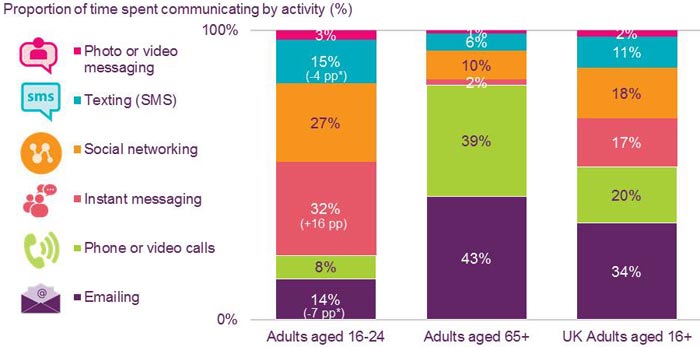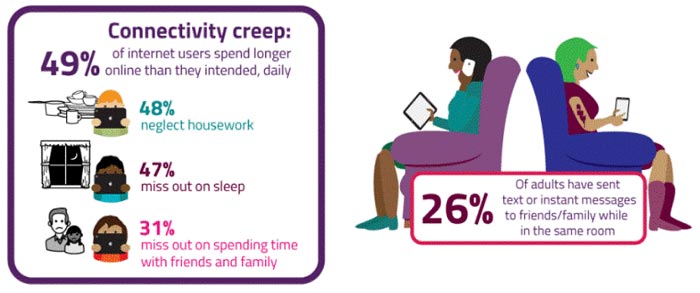There is no denying that internet use has become a more integral part of many people's lives. It spread from desktop and laptop users, to smartphone and tablet users, now many rely on it as a replacement for traditional TV services, gaming, communications and more. With more smart devices on the way, including IoT devices, being connected to the net and spending time checking messages, updates, likes, Tweets and so on doesn't look like it will diminish any time soon. Thus a large number of people "have undertaken a 'digital detox'," claims Ofcom.

The average adult in the UK spends an average of one day per week (25 hours) online. Nearly 60 per cent of users consider themselves to be 'hooked' on the internet, feeling the need to check various things online many times daily. While a connected device can keep you up to date on current affairs, help you with shopping, travel, work, and life inspiration such positives can be cancelled out by growing addiction. Furthermore, those surveyed readily admit that net addiction has caused them to miss out on sleep, neglect housework, miss out on time with friends and family, and also be late for various meetings and appointments.
The headlining claim of the recent Ofcom study is that "Fifteen million UK internet users have undertaken a 'digital detox' in a bid to strike a healthier balance between technology and life beyond the screen". The study involved 2,025 adults and 500 teenagers and it asked about reliance on the internet and its effect on daily life.
A 'digital detox' is defined by Ofcom as seeking a period of time without internet use. In its survey entitled the Communications Market Report 2016, Ofcom found that 15 million people in the UK (34 per cent of internet users) have sought a period of time offline, with one in ten doing so in the last week alone. Looking closer at the figures, a quarter of the detoxers managed a whole day internet free, a fifth of them took a week off and five per cent managed a month-long detox.

Reasons cited for attempting a 'digital detox' were mainly to spend more time doing other things, and or spend more time talking to friends and family. The detox process as a whole was mostly positive with a third feeling more productive, over a quarter enjoying the 'liberation' in general, and exactly a quarter saying they enjoyed life more. Some ill effects reported included feeling FOMO (fear of missing out), feeling lost, and feeling cut off (all in the region of 15 per cent).
Have any HEXUS readers attempted a 'digital detox' recently?
P.S. Don't try it now, we have some great reviews coming up…













